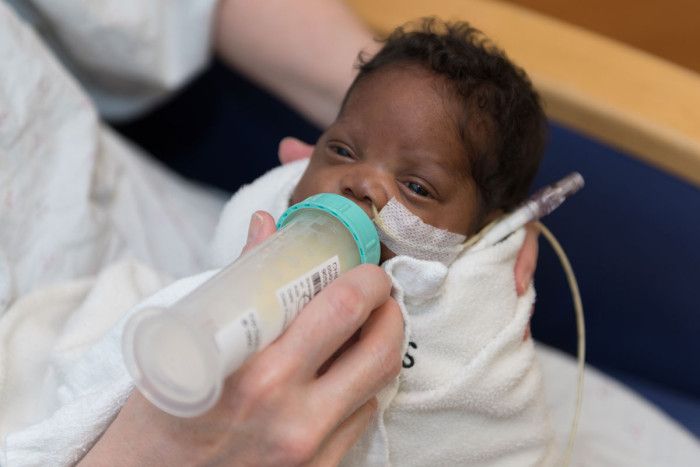It’s easy to get excited about breast milk. Just the basic fact that a woman can eat food and turn it into a complete food instantly tailored to grow that particular newborn is quite outstanding. But there is more to breast milk than what meets the eye and understanding the perfection of it could mean a better life for premature babies.
For starters, when a baby suckles her mama’s breast, a vacuum is created. That’s right. Saliva in, milk out. The infant’s saliva is sucked back into the mother’s nipple, where receptors in her mammary gland read its signals. Katie Hinde, a biologist and associate professor at the Center for Evolution and Medicine at the School of Human Evolution & Social Change at Arizona State University, calls this “baby spit backwash,” and it contains information about the baby’s immune status. As far as scientists can tell, baby spit backwash is one of the ways that breast milk adjusts its immunological composition. When mammary gland receptors detect the presence of pathogens, the mother’s body produces antibodies to fight it, and those antibodies travel through breast milk back into the baby’s body, where they target the infection.
“[Breast] Milk is so incredibly dynamic,” says Hinde. “There are hormones in breast milk, and they reflect the hormones in the mother’s circulation. The ones that help facilitate sleep or waking up are present in your milk. And day milk is going to have a completely different hormonal milieu than night milk.” That broken-down means that breastmilk made at night contains hormones that help your baby sleep.
